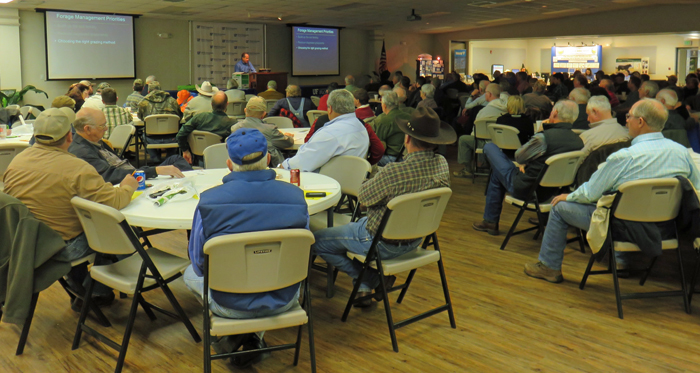
A record crowd of over 160 people attended the 2015 Beef Conference held in Marianna. Photo Credit Doug Mayo
More than 160 cattle ranchers, allied industry representatives, extension agents and specialists came together to make the 30th annual Northwest Florida Beef Conference one of the best ever. The boost in attendance from previous years was, without a doubt, thanks to the help the Florida Cattlemen’s Association provided by spreading the word about this year’s event.
The theme for the event this year was “Investing in the Future of Your Herd.” Six presentations provided some first-rate ideas for ranchers to consider during this period of excellent prices to improve operational efficiency now for the time when prices moderate again. There were also 20 trade show exhibitors who discussed products and services they provide for the beef industry in the region.
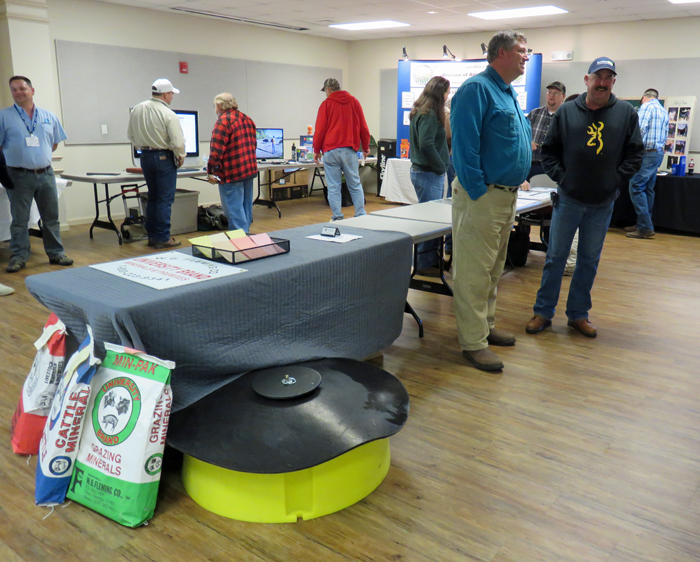
20 trade show exhibitors also took part to share the products and services their companies provide to the beef industry in the Panhandle. Photo credit: Doug Mayo
A number of the ranchers who attended the Beef Conference asked about getting copies of the presentations that were made. The following are highlights of the meeting as well as links to printable versions of the actual presentations that were given. Click the link in the title to download the presentations and see more of the details that were shared by the speakers.
Dr. Jose Dubeux, UF Forage Management Specialist, discussed how forage variety choice, fertilization and rotational grazing can be used to increase stocking rates and improve the productivity of pastures. He also shared how cool-season annuals and forage legumes can further enhance the productivity of pastures.
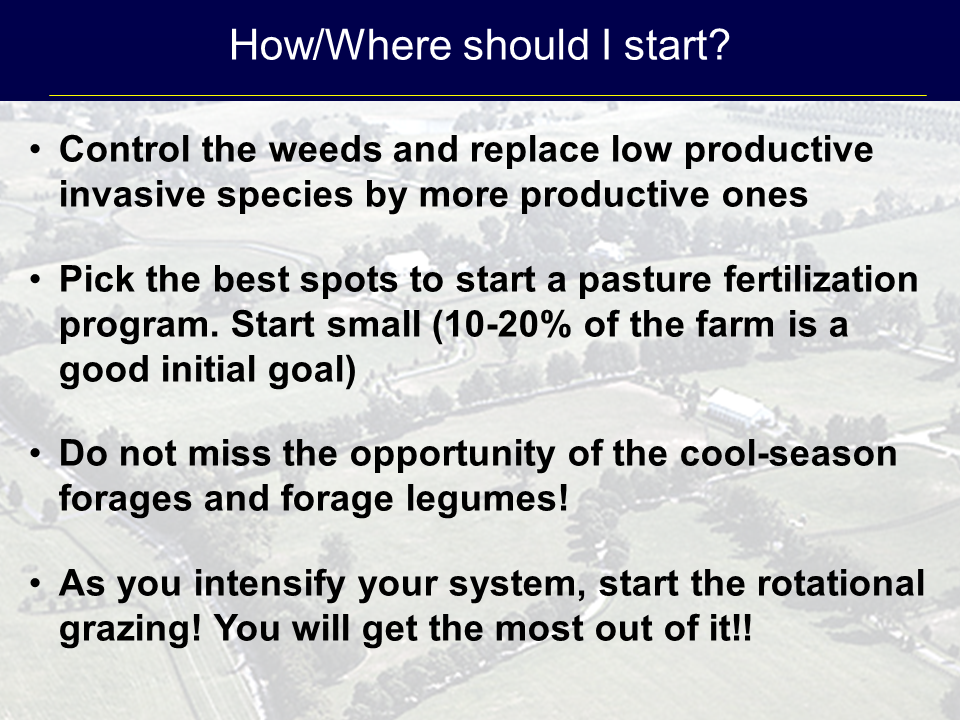
Summary slide from Jose Dubeux presentation on improving pasture efficiency at the 2015 NW FL Beef Conference.
Dr. Jay Ferrell, UF Extension Weed Specialist, discussed pasture weed control. He said, “We have been taught that pastures are a natural resource, but they are actually an asset that has equity. Over the years we have depreciated that asset, in some cases down to zero.” Weeds reduce the productivity of pastures. Dr. Ferrell recommended herbicide options to control the major weeds or “Pasture Robbers”, but also talked about the need for improved pasture fertility to prevent re-infestation.
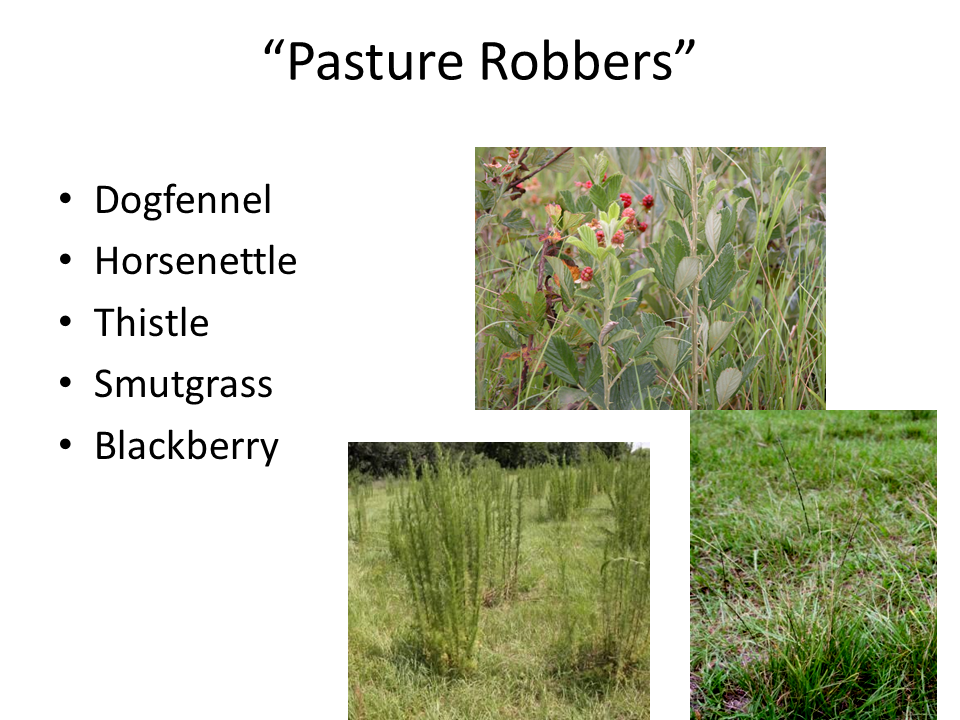
Jay Ferrell discussed control options for five of the most troublesome pasture weeds in the Panhandle at the 2015 NW FL Beef Conference.
Dr. Nicolas DiLorenzo, UF Beef Nutrition Specialist, discussed several options to make hay storage and feeding more efficient. He did some “Cowboy Math” that backed up Dr. Don Ball’s famous quote: “Some folks pay for a barn they have never built.” He also showed research data that showed the value of a hay ring or cone feeder to reduce feeding waste by 10%. He also shared the results of research trails he conducted utilizing triticale/ryegrass pastures and also glycerol/molasses liquid feed to boost weight gains on weaned cattle. Glycerol is a byproduct of ethanol production from corn.

Nicoals DiLorenzo did some “Cowboy Math” that showed how investing in hay barns can improve efficiency through storage waste reduction at the 2015 NW FL Beef Conference.
Chris Prevatt, UF Livestock Economics Agent, compared the forecasts of prices based on Cattle Fax’s reports in contrast to current futures market prices. He also discussed how high prices are only part of the equation for profitability. Managing herd performance and production costs will become even more important to remain profitable in the years ahead,
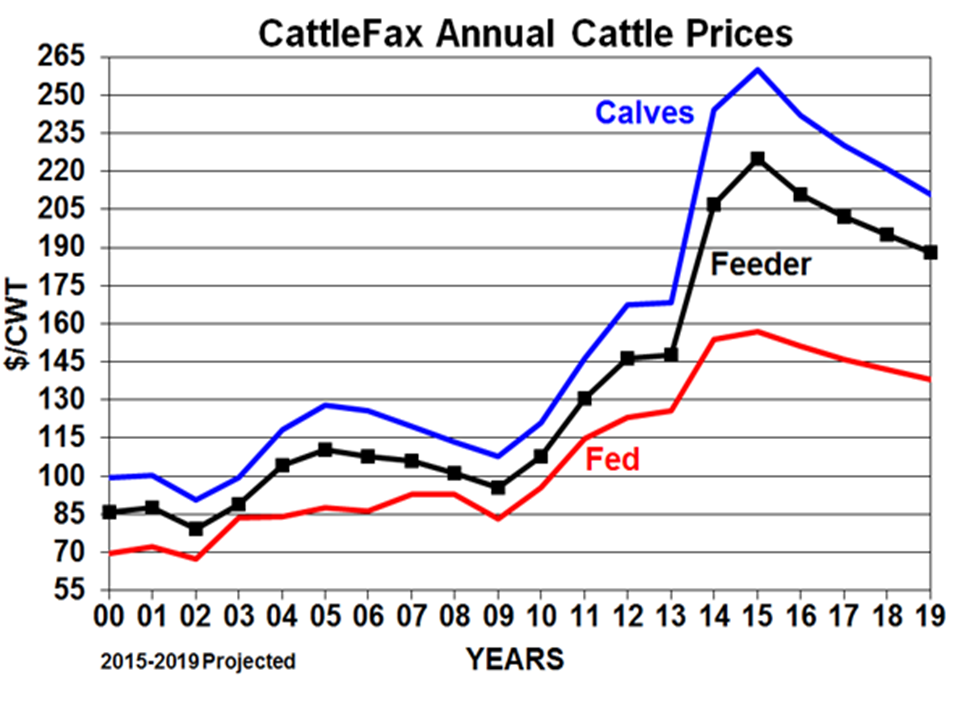
Chris Prevatt shared Cattle Fax’s forecast for prices for the remainder of the decade at the 2015 NW FL Beef Conference.
Dr. Michael Gutter, UF Financial Specialist, provided five tips to help ranchers secure the financial future of their farm. He talked about making sure the business was protected from risk, but also talked about protecting the farm family finances. He discussed the need to plan for retirement, making investments outside the cattle business, so that the farm could be transferred to the next generation. Gutter also talked about the need to have open and honest communication with everyone in the family, so the heritage of farming could be passed to a future generation.

Micahale Gutter provided five tips to Secure Their Financial Future of Your Farm at the 2015 NW FL Beef Conference.
In the final presentation, Vitor Mercadante, Animal Science PhD Student,provided a presentation on the tools ranchers can use to manage reproduction: breeding season, selection pressure, management, and new technologies that include estrous synchronization and timed artificial insemination. He shared the recorded success the North Florida Research and Education Center has had improving the reproduction performance of their 300 head herd through this series of management changes. With the combination of management changes their herd is producing more uniform calves, because their average calving date has been reduced from 80 days to 39 days in six years, which has increased the income and efficiency of the herd.
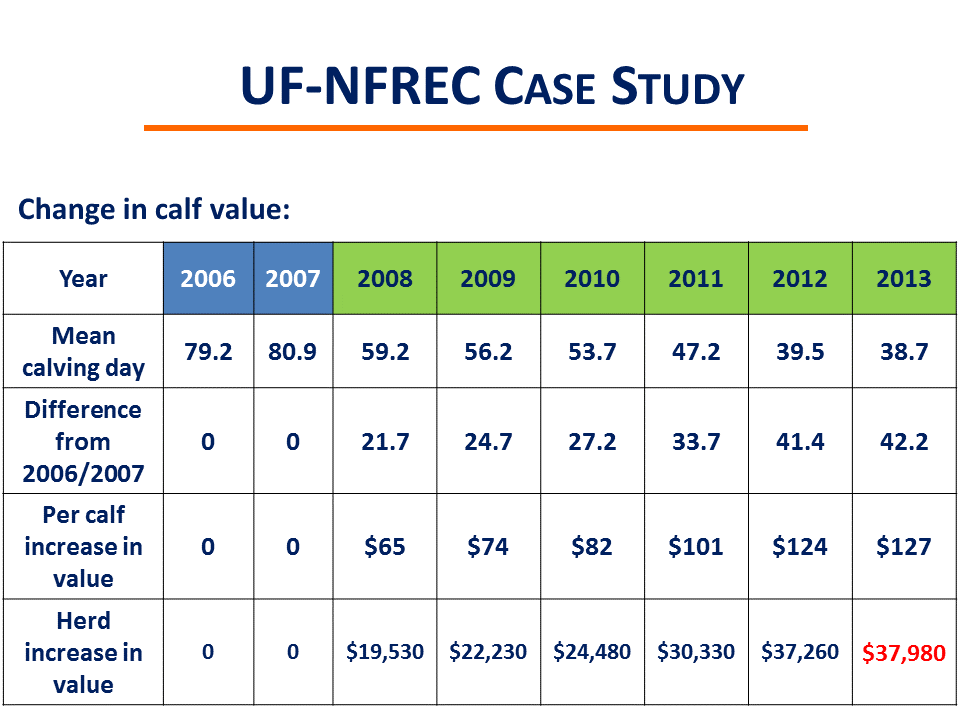
Vitor Mercadante shared how timed artificial insemination and allowed the NFREC Beef Unit to shorten their breeding season and tighten up the calving period, which ultimately increased the efficiency and profitability of their herd at the 2015 NW FL Beef Conference.
The event ended with a rancher favorite, a steak lunch. The Jackson County Cattleman’s Association’s “Cooking Crew” proved once again that nobody grills like cowboys, who not only love their livelihood, but are very proud to serve their favorite retail product steaks.
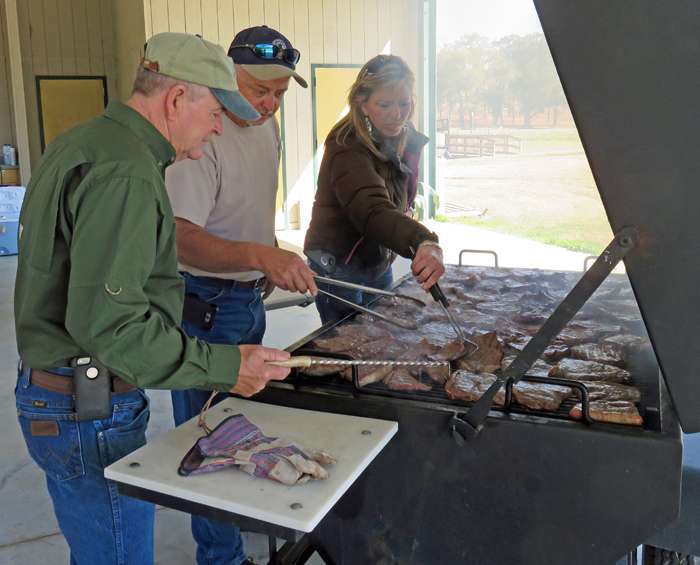
The Jackson County Cattlemen’s Association’s “Cooking Crew” did an excellent job grilling steaks for the crowd at the 2015 NW FL Beef Conference.
- 2025 Weather Summary and 2026 1st Quarter Outlook - January 16, 2026
- 2025 Average Farmland Rental Rates, Lease Agreements, and Worker Wages Summary - January 16, 2026
- Friday Feature:1954 How to Dial Your Phone - January 16, 2026
